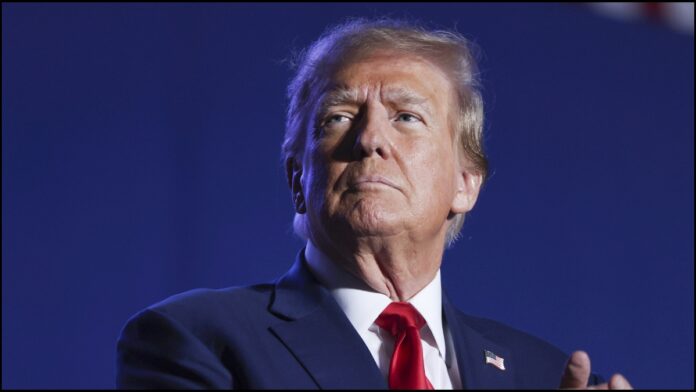Former President Donald Trump has taken his legal battle to the highest court in the land, appealing a December ruling by the Colorado Supreme Court that barred him from the state’s ballot. This unprecedented case revolves around the application of Section 3 of the 14th Amendment and the question of whether Trump’s alleged involvement in the January 6, 2021, Capitol attack qualifies as engaging in insurrection.
In a 4-3 decision, the Colorado Supreme Court marked a historic moment by utilizing Section 3 of the 14th Amendment to disqualify a presidential contender. The provision states that individuals who have “engaged in insurrection” against the U.S. government are ineligible to hold office. The court found that Trump’s role in the Capitol attack met the criteria outlined in the constitutional clause, leading to his exclusion from the state’s ballot.
Now, the stage is set for a high-stakes showdown as Trump seeks to overturn this decision through an appeal to the U.S. Supreme Court. This move not only underscores the gravity of the case but also raises crucial questions about the interpretation and application of constitutional provisions in the context of contemporary political events.
Trump’s legal team is expected to argue that the Colorado Supreme Court’s ruling sets a dangerous precedent by relying on a narrow interpretation of Section 3. They may assert that the clause was not intended to be applied retroactively to events that occurred after an individual left office, thereby challenging the court’s rationale for disqualifying the former president.
About Supreme Court:
On the other hand, those supporting the Colorado Supreme Court’s decision argue that the events of January 6, 2021, were a direct assault on the democratic process and institutions of the United States. They contend that disqualifying Trump from the ballot aligns with the spirit of the 14th Amendment, which was ratified in the aftermath of the Civil War to address issues of citizenship, equal protection, and rebellion against the federal government.
The outcome of this legal battle could have far-reaching implications for Trump’s political future and set a precedent for how the 14th Amendment is interpreted in cases involving alleged insurrection. Additionally, it raises broader questions about the role of constitutional provisions in shaping the eligibility of individuals for public office based on their actions after leaving office.
As the case unfolds before the U.S. Supreme Court, it is likely to capture national attention, further intensifying the ongoing debate over the events of January 6, 2021, and their repercussions on the political landscape. The decision rendered by the highest court in the land will not only impact Trump’s immediate political prospects but may also shape the contours of constitutional interpretation in the years to come.


